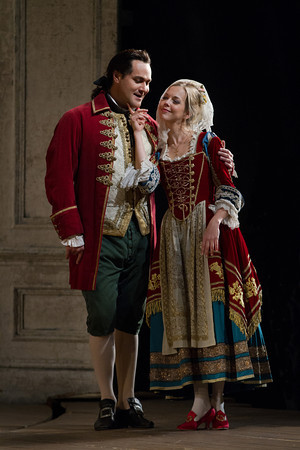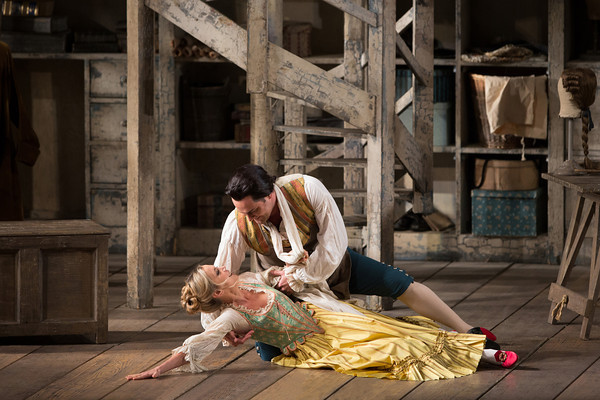I
would like to preface this review by stating that I was present at the opening
night week ago, but due to the extenuating circumstances created by Hurricane
Sandy I was unable to find the time, or computer to pull it off until this
morning. I would also like to extend my best wishes to those affected by the
hurricane and hope that they are undergoing a full recovery as soon as
possible.
I have always felt that a
Mozart opera does not work unless it is well sung and well staged. Most would
argue that this is the case with any opera, but for me Mozart’s work demand all
its players to step up their game all the more significantly. This case could
not be more evident than in an opera such as Nozze di Figaro where a flat staging and poor acting can make the complex
drama slow and mundane.
Fortunately, the Met
Opera has chosen a strong cast and adequate director for the proceedings. While
I did find a few flaws in the way the opera was put together, I can not help
but feel satisfied by how the evening went. I usually refrain from mentioning
other critics, but I could not help but notice how loathing they were toward
stage director Gregory Keller’s revival of Jonathon Miller’s production. Keller
had a few rough patches here and there, but I found his direction sufficient
and compelling at times. This Nozze was
surely filled with sexual innuendo, then again isn’t that the main thrust of
the opera’s conflict? Those complaining that Keller cares little for the
ambiguity of the work should take a look at his final direction after the
Countess forgives the Count and they prepare for a reconciliatory kiss. It is a
moment of pure tension and the fact that he never gives us the cathartic
release suggests deeper issues in this marriage.
To suggest this was a
perfect directorial turn would be wrong. During Cherubino’s escape in Act 2,
Mojca Ermann’s Susanna and Christine Schafer’s Cherubino stood frozen on stage
looking quite uncomfortable. It took a great deal of energy from the
proceedings and looked rather under rehearsed. Aside from that I did not really
experience any overwhelmingly poor choices that would degenerate Mozart’s great
opera to vulgarity. Susanna and Marcellina engage in a cat fight to end the
second Act, but I think it was comic in execution. I was also thrilled at the
choice to cut the Act 4 arias of Basilio and Marcellina as it helped move the
drama forward rather than killing its momentum.


